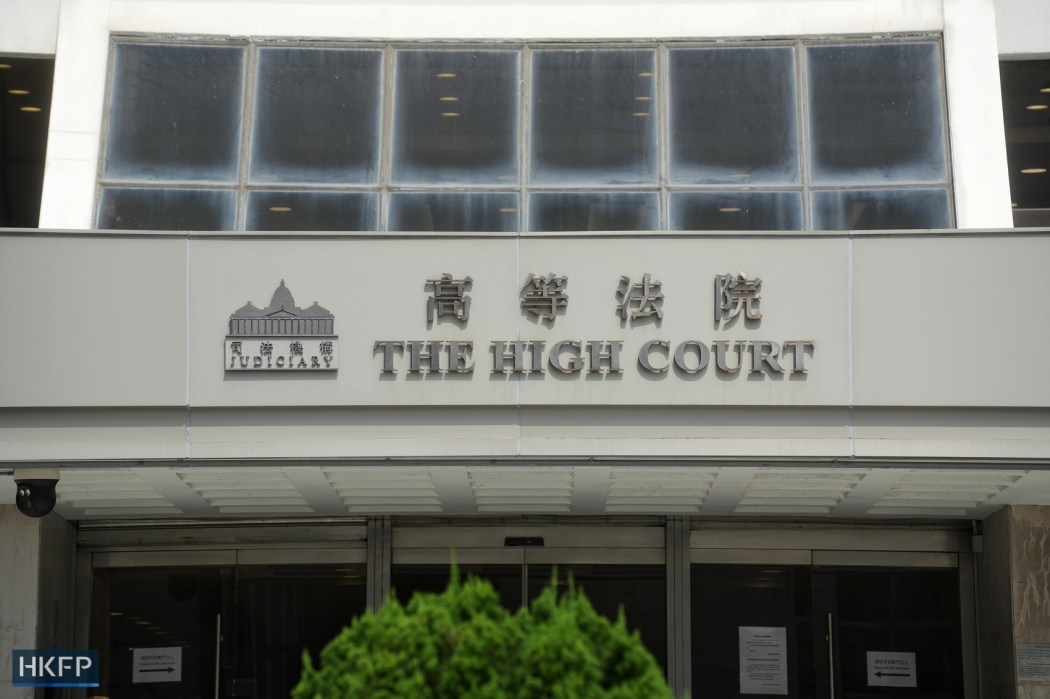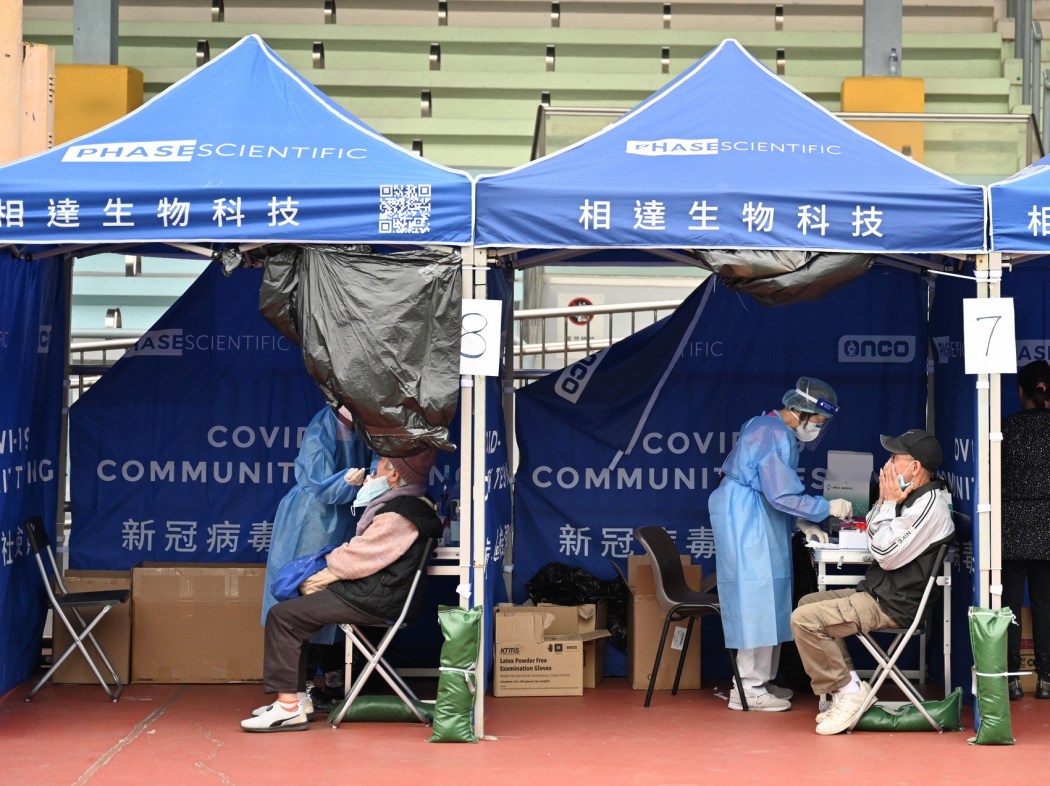A Hong Kong man who was jailed for seven and a half months over exposing others to Covid-19 infection has appealed his conviction.

Paul Lui Po-lam, a fruit seller, appeared before judge Douglas Yau at the High Court’s Court of Appeal on Thursday morning.
He was convicted of exposing others to the risk of infection in March, after pleading not guilty to nine counts relating to restaurant and supermarket visits he made, and public transport rides he took, while infected with Covid-19 last February.
The magistrate said while handing down Lui’s seven-and-a-half-month sentence that he had been “selfish,” and his actions could have caused the government’s anti-epidemic efforts to be in vain during the city’s deadliest Covid wave.
Addressing the court on Thursday, Lui’s legal representative said that even though his client had tested positive on a Covid rapid test, the government had yet to recognise those tests at the time, local media reported. Therefore, Lui did not fit the definition of a Covid patient, who were then identified exclusively through government-approved PCR tests.

The case was adjourned to December 13 to give time for the appellant and the prosecution to prepare statements on whether there should be a retrial.
Not a Covid ‘patient’
According to the case details, Lui went to restaurants and supermarkets in Sham Shui Po and Mong Kok and took the MTR six times between February 24 and 28, 2022, despite knowing that he had Covid-19. Eateries he visited included Maxim’s MX and Yoshinoya.
He took a Covid nucleic acid test on February 24, 2022, but did not receive his positive result until over a week later on March 4, 2022.
Lui’s representative said on Thursday that the court should define in medical terms what it meant to be a Covid “patient,” according to local media reports. The medical sector began recognising rapid test results on February 26, 2022 – prompting the government to accept such results – amid a lengthy backlog of PCR tests as tens of thousands of Hongkongers caught Covid-19.
His representative added that Lui should not have been considered as “knowing” he was infected, per the text of the city’s Hong Kong’s Prevention and Control of Disease Regulation.

In response, the Department of Justice representative argued that even though Lui only learned of his nucleic acid test result on March 4, 2022, the test had been taken on February 24, 2022, meaning the virus was already present in his body then.
Lui is currently out on bail and has already finished serving most of his sentence.
In late February 2022, Hong Kong was gripped by the fifth and worst wave of Covid-19, with tens of thousands of daily confirmed cases involving the highly contagious Omicron variant. The number of daily infections and the death toll soared in March and the city’s Covid-19 death rate was at one stage the highest in the developed world.
The court heard earlier that Lui had said on social media that he had a sore throat and would visit “blue shops.”
The colours yellow and blue have been widely used to identify opposing political factions in Hong Kong, particularly in the wake of the 2019 extradition bill protests. Yellow was associated with pro-democracy movements, while blue was affiliated with supporters of the government and the police.
Protests erupted in June 2019 over a since-axed extradition bill. They escalated into sometimes violent displays of dissent against police behaviour, amid calls for democracy and anger over Beijing’s encroachment. Demonstrators demanded an independent probe into police conduct, amnesty for those arrested and a halt to the characterisation of protests as “riots.”
Support HKFP | Policies & Ethics | Error/typo? | Contact Us | Newsletter | Transparency & Annual Report | Apps
Help safeguard press freedom & keep HKFP free for all readers by supporting our team

LATEST FROM HKFP
HKFP has an impartial stance, transparent funding, and balanced coverage guided by an Ethics Code and Corrections Policy.
Support press freedom & help us surpass 1,000 monthly Patrons: 100% independent, governed by an ethics code & not-for-profit.










